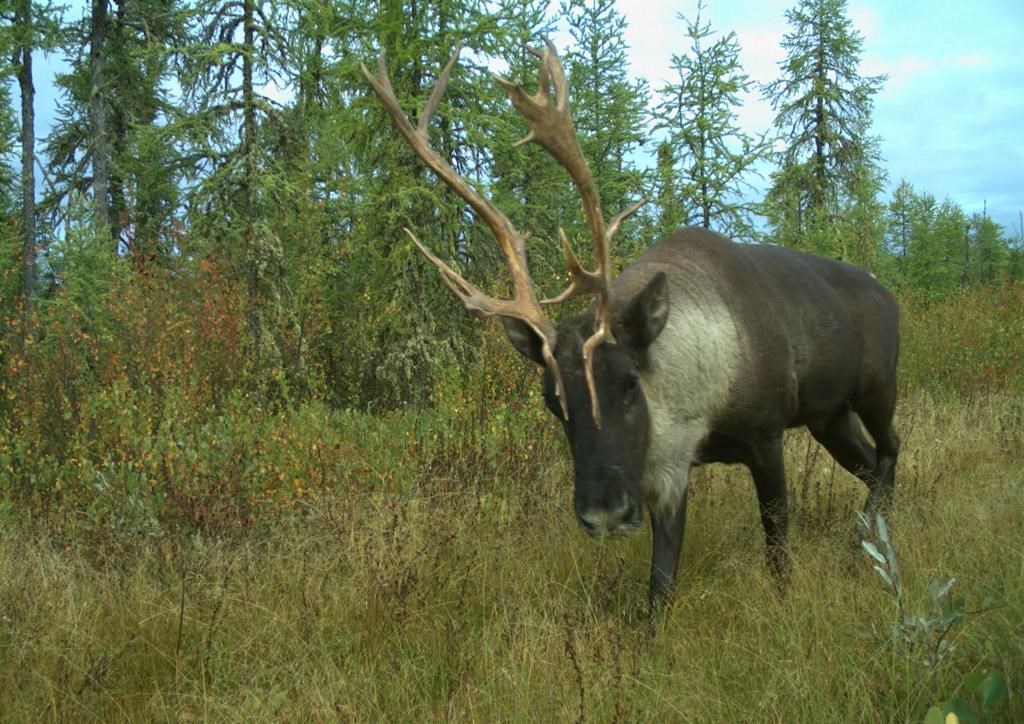A park in northern B.C. is about to become much larger in size, all in an effort to help the caribou population.

Located west of Chetwynd, B.C., and Hudson’s Hope, Klinse-za Park will expand nearly 100 times in size, from 2,689 hectares to around 200,000 hectares.
The Ministry of Environment says the expansion will better protect wildlife habitat and sacred sites, and is part of B.C.’s goal of protecting 30 per cent of provincial lands by 2030.

The expansion will also include two mountains known as the Twin Sisters, which the ministry says is an area of cultural and spiritual significance for Treaty 8 First Nations.
The federal government will provide $46 million to support compensation for industries and tenure holders affected by the expansion, and another $10 million for a regional economic diversification trust for the region.

Get daily National news
“Protecting and recovering threatened species and their habitat is a shared responsibility and priority for B.C., Canada and First Nations that requires everyone to work together,” environment minister George Heyman said.
According to provincial data, caribou throughout B.C. has declined around 55 per cent during the past 40 years, from 40,000 animals to an estimated 17,000.

“The decline of caribou is a complex problem, and we continue our work to stabilize populations,” said Heyman.
“Providing a large area that protects caribou and their habitat from development is a critically-important step forward that is consistent with the agreements we first announced in 2020.”
The ministry noted that the expansion will create the largest provincial park established in B.C. in a decade.
“Since time immemorial, our ancestors have lived in harmony with these lands, and we strive to continue to walk in these footsteps laid before us,” said Chief Roland Willson of West Moberly First Nations.
“The teachings were to leave no trace nor impact as you pass through the lands.”

The ministry says two existing maternal penning sites for caribou, operated by a non-profit organization between West Moberly First Nations and Saulteau First Nations, will now be within the park’s boundaries.
The local herd is said to have grown to 138 caribou from 36 in 2013.
“Our sacred Klinse-za/Twin Sisters area will now be protected for our people forever,” said Chief Rudy Paquette of Saulteau First Nations.
“This is another step in the process by which we are proving that we can recover endangered species and protect the sacred lands of First Nations people, while also providing for healthy ecosystems and diverse economies.”
A member of the David Suzuki Foundation also commented on the announcement, calling it a positive step.
Boreal project manager Rachel Plotkin said “At this moment in time, when it’s so critical to protect and restore nature, we’re encouraged to see progress in on-the-ground measures to advance caribou recovery, and to recognize the rights, title and Treaties of the West Moberly and Saulteau First Nations.”
- Carney unveils ‘Buy Canadian’ defence plan, says security can’t be a ‘hostage’
- Rhode Island shooter killed ex-wife, son before bystanders intervened: police
- Canadian immigration officers investigating hundreds identified by extortion task force
- ‘Canada can broker a bridge,’ Carney says on new trading bloc efforts








Comments
Want to discuss? Please read our Commenting Policy first.